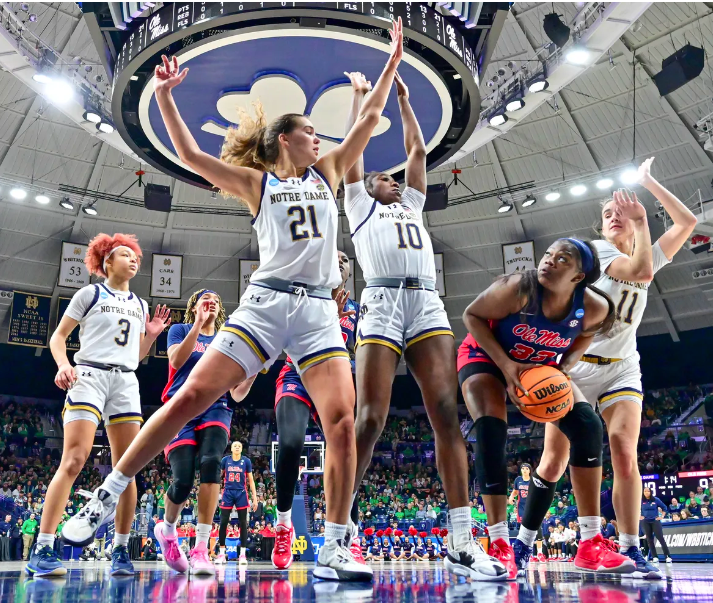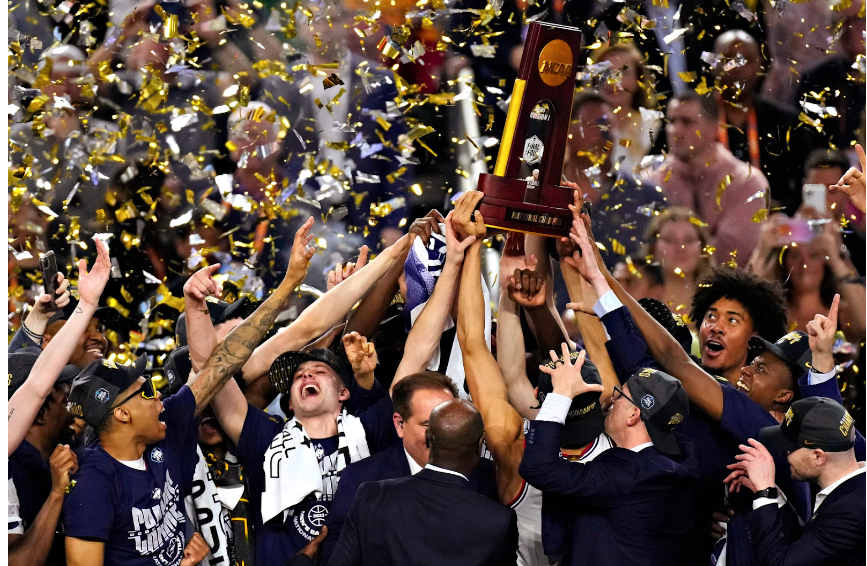Sing: A Lighthearted Holiday Hit
January 1, 2017
As a singer and a sucker for animated movies, I was excited when the trailers came out over the summer for Sing. The new animated movie tells the story of Buster Moon, a koala, played by Matthew McConaughey, with dreams of launching his theater into fame after a series of failing shows. As a final effort to save the theater from closure, Moon plans for a singing competition. A mishap with Moon’s assistant bumps the cash prize from $1,000 to $100,000 and catches the attention of the citizens of the city.
The rest of the film follows contestants Rosita, an overworked, underappreciated mother pig, Ash, a porcupine in a rock band with her controlling boyfriend Lance, Johnny, a gorilla who desperately wants to escape his life of organized crime in order to sing, Mike, a small mouse with a beautiful voice and arrogant attitude, and Meena, a shy teenage elephant who is taken onto the show as a stagehand but secretly wishes to overcome her stage fright and perform in the show. All the while, Buster realizes he cannot afford to give out the outrageously high cash prize and goes through many attempts to gain the money from a rich friend’s grandmother, destroying the Moon Theater in an attempt to impress her. The movie culminates in a showcase of the talent of the contestants and all the storylines coming together in a classic children’s movie fashion.
While watching the film, I noticed the film company Illumination’s subtle manner of attacking sexism. The female characters are constantly underestimated and faced with rude behavior from male characters, teaching children that this behavior is wrong. Rosita’s husband, Norman, never helps her with her children. In many instances, Rosita comes home from rehearsal excited to tell Norman about her day, only to find that he isn’t listening or doesn’t care. Later, he discovers how hard Rosita has to work to raise all 25 of their children and realizes that he shouldn’t have discarded her in such a way, teaching young audiences to respect mothers and all they do.
In her rock band, Ash is overshadowed by Lance, her boyfriend. Lance constantly reminds her to only sing backup vocals to him. They audition for the singing competition together, yet only Ash is selected to compete. His bitterness over being let go causes him to not be very supportive of Ash’s participation, and he begins to cheat on her while she’s at rehearsals. Meanwhile, Buster gives Ash a bubbly pop song to perform and princess dress to wear in her act, wildly out of her punk rock style. When she catches Lance, Ash is distraught, but battles through it to write an inspiring anthem to perform at the show, marching to the beat of her own drum and encouraging young girls to be themselves.
Meena attempts to overcome her stage fright, but chokes at her audition and is heckled offstage by Mike. This destroys her confidence and she is very hesitant to sing in front of people anymore. When Buster hires Meena as a stagehand for the show, she slowly begins to believe in herself more and more, culminating in a rise in self confidence and a rousing performance of “Don’t You Worry ‘Bout a Thing” by Stevie Wonder. Throughout the film, the male characters severely underestimated the women, but are proved wrong when the women go on to perform well. This teaches young audiences that they should believe in themselves, no matter what anyone else thinks. The film’s subtle approach to the issue also teaches children about sexist behaviors, as they see how characters like Mike and Norman are wrong in their mistreatment of women and learn how these behaviors are wrong.
Though I found some pieces of the plot to be little predictable, I really enjoyed the movie overall. The progressive undertones of the film were very well thought out and subtly integrated throughout the plot. If you’re looking for a fun, lighthearted film to watch this holiday season, then I would definitely recommend Sing.





























![Finneas and Billie Eilish accept the Song Of The Year award for What Was I Made For? [From the Motion Picture “Barbie”]. PHOTO: AMY SUSSMAN/GETTY IMAGES](https://harborlight.hinghamschools.com/wp-content/uploads/2024/02/Screen-Shot-2024-02-12-at-8.42.44-AM-600x402.png)

